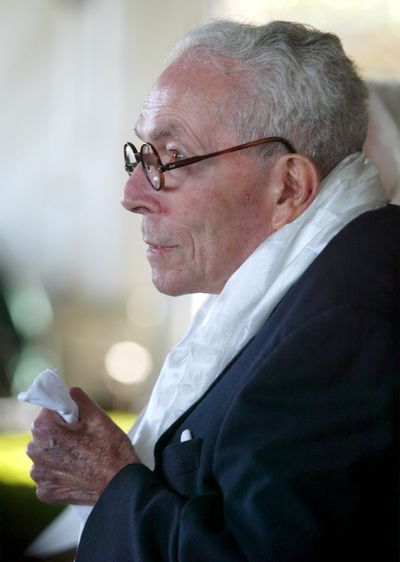Claiborne Pell, grant sponsor, dies at 90

Claiborne Pell, a six-term Rhode Island Democrat who rose to be chairman of the Senate Foreign Relations Committee, died Thursday at his Newport, R.I., home. He had Parkinson’s disease since 1994. He was 90.
A Yankee Brahmin and former Foreign Service officer who was virtually unbeatable at the polls in a largely Catholic, blue-collar state, he was best known for his sponsorship of the 1972 program that has helped 54 million low-income and moderate-income students attend college. He also sponsored the legislation that founded the National Endowment for the Arts and Humanities.
He also was committed to maritime and foreign affairs issues, and was strongly pro-choice on abortion rights, a consistent vote for labor, and an ardent advocate of arms control and the rule of law in international affairs.
First elected to the Senate in 1960, Pell was aloof, diffident, courteous and self-effacing. Unfailingly polite, he also had quirks, such as jogging in a tweed coat. Eccentric and occasionally absent-minded, he was asked during a 1990 election-year debate what legislation he had sponsored that specifically benefited Rhode Island.
“I couldn’t give you a specific answer,” he averred in a famous reply. “My memory’s not as good as it should be.”
He went on to win re-election by a margin of almost 2 to 1.
The qualities that endeared Pell to the voters of Rhode Island also endeared him to colleagues on Capitol Hill.
Senate Majority Leader Harry Reid on Thursday called him “a great American and a giant of the Senate. Any student who has ever received federal aid has Senator Pell to thank for his or her education. The Pell Grants he created revolutionized our education system for generations of Americans who might not otherwise be able to pursue higher education.”
But his unwillingness to impose his own agenda on others served him poorly, some thought, when he became chairman of the prestigious Senate Foreign Relations Committee when the Democrats regained control of the Senate in 1987.
The committee had been a forum for opposition for the U.S. policies in Vietnam during the 1960s, under the forceful guidance of Sen. J. William Fulbright, D-Ark. In the mid-1980s, under Sen. Richard Lugar, R-Ind., the committee faced down White House opposition to important initiatives involving South Africa and the return of democracy to the Philippines.
But Pell refused to lead drives for the issues he cared about, such as opposition to the use of military force under many circumstances and passionate support of nuclear disarmament, the United Nations and human rights.